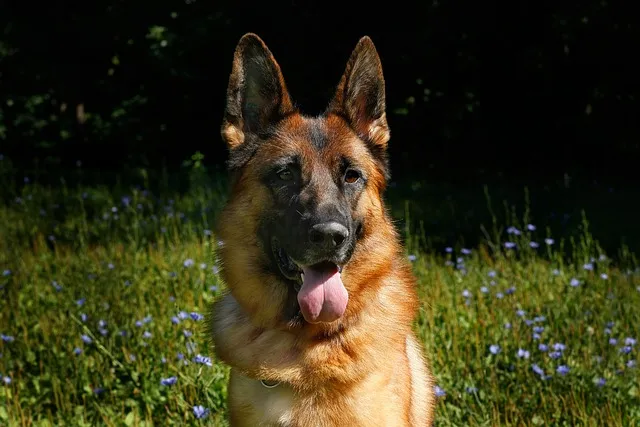When it comes to the health of your German Shepherd, one important aspect to consider is their dental care. Knowing how many teeth they have and understanding the general layout of their teeth can help you take better care of their oral health.
Table of Contents
The Basics of a German Shepherd’s Teeth

German Shepherds, like most dogs, have two sets of teeth throughout their lives: baby teeth and adult teeth. The number of teeth varies slightly across different breeds, but the structure remains quite similar.
- Puppy Teeth (Milk Teeth): German Shepherd puppies are born without teeth. Their first set, the baby teeth, start to come in at around 3 weeks of age. By the time they are 6 months old, they will have a full set of 28 baby teeth.
- Adult Teeth: When they reach about 6 months old, German Shepherd puppies begin to lose their baby teeth as their permanent adult teeth come in. By the time your German Shepherd is around 1 year old, they will have a full set of 42 adult teeth.
The Anatomy of a German Shepherd’s Teeth
A German Shepherd’s adult teeth are made up of several different types:
- Incisors (12 total): These small teeth are located at the front of the mouth. German Shepherds use them for nibbling and grooming.
- Canines (4 total): The sharp, pointed teeth next to the incisors. These are used for gripping and tearing food.
- Premolars (16 total): Located behind the canines, these teeth are used for chewing and grinding food.
- Molars (10 total): These are the larger teeth at the back of the mouth and are responsible for grinding food down before swallowing.
Why Is This Information Important?
Knowing how many teeth your German Shepherd should have helps ensure that they are developing normally. If you notice that your dog is missing teeth or having trouble chewing, it could be a sign of dental issues. Regular check-ups with the vet can help detect problems like tooth decay, gum disease, or even misaligned teeth.
Taking Care of Your German Shepherd’s Teeth
Just like humans, your German Shepherd needs dental care to maintain a healthy mouth. Here are some tips for keeping their teeth in good shape:
- Brushing: Regular brushing is essential for preventing plaque buildup. Use a dog-specific toothbrush and toothpaste.
- Dental Chews: Providing dental chews can help reduce plaque and tartar. They also satisfy your dog’s natural chewing instincts.
- Regular Vet Visits: Your vet can check your dog’s teeth during routine visits. This can help catch issues early and keep their mouth healthy.
- Proper Diet: Feeding your German Shepherd a balanced diet with high-quality food can promote overall dental health.
Conclusion
German Shepherds have 42 adult teeth, which are designed to help them eat and chew their food efficiently. By understanding their dental structure and providing regular care, you can help ensure your dog’s mouth stays healthy throughout their life.
You might Like: How Often To Bathe German Shepherd
Remember, dental issues can lead to bigger health problems, so taking preventive measures will keep your German Shepherd happy and healthy for years to come.
FAQs
How many teeth does a full grown German Shepherd have?
A full-grown German Shepherd typically has 42 teeth, which is standard for adult dogs. This includes 12 incisors, 4 canines, 16 premolars, and 10 molars.
How many puppies are in a German Shepherd litter?
A German Shepherd litter typically contains 6-8 puppies, though it can range from 4 to 12 depending on factors like the dog’s age, health, and genetics.
At what age does a German Shepherd stop biting?
German Shepherds usually stop biting as they mature, around 6-8 months, when their adult teeth fully come in. However, they may continue mouthing or play-biting until they are about 1-2 years old. Proper training and redirection help them learn appropriate behavior.






